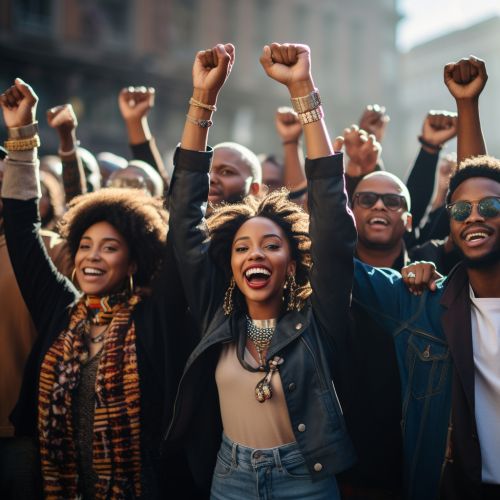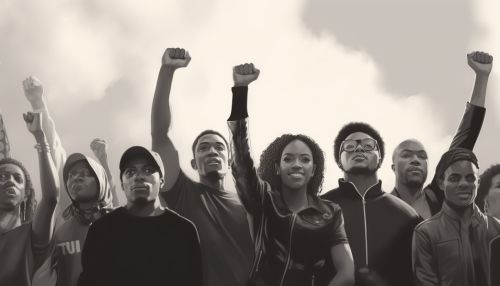Black Power Movement
Origins
The Black Power Movement was a significant aspect of the Civil Rights Movement in the United States, which sought to empower African Americans economically, politically, and socially. The term "Black Power" was popularized by Stokely Carmichael, a civil rights activist and leader of the Student Nonviolent Coordinating Committee (SNCC) in the late 1960s. The movement emphasized racial pride, economic empowerment, and the creation of political and cultural institutions.


Ideology and Philosophy
The Black Power Movement was not a monolithic entity and encompassed a wide range of ideologies, from revolutionary socialism to black nationalism and black separatism. It sought to challenge the racial hierarchy in the United States and globally, and to redefine the cultural, social, and political identity of African Americans. The movement emphasized self-determination, self-defense, and the need for African Americans to define their own goals and lead their own organizations.
Key Figures and Organizations
Several key figures and organizations were instrumental in the Black Power Movement. The Black Panther Party, founded by Bobby Seale and Huey P. Newton, was one of the most prominent. The party advocated for self-defense and the establishment of social programs to address the needs of African American communities. Other key figures included Malcolm X, who advocated for black self-determination and self-defense, and Angela Davis, a prominent activist and scholar.
Impact and Legacy
The Black Power Movement had a profound impact on the struggle for racial equality in the United States. It led to the establishment of important cultural, political, and social institutions, and influenced subsequent movements for racial justice. The movement also had a significant cultural impact, leading to the emergence of the Black Arts Movement, which sought to create a distinctive black aesthetic and to celebrate black culture.
Criticism and Controversy
The Black Power Movement faced significant criticism and controversy. Critics argued that the movement's emphasis on racial pride and self-determination could lead to racial separatism and undermine the goal of racial integration. The movement was also criticized for its perceived militancy and for its advocacy of self-defense in response to racial violence.
